Pandemic and Education = A New Approach
Part 1
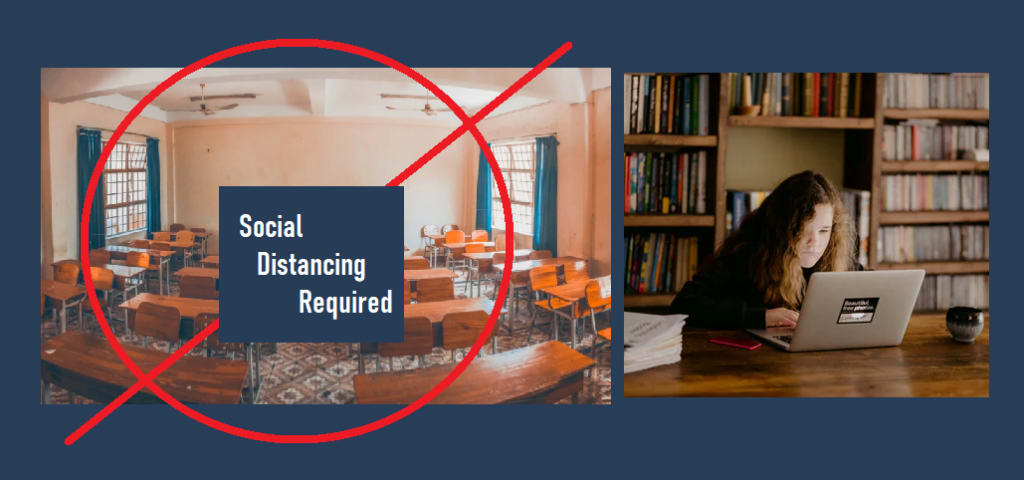
Our public school tradition goes back a long way. For example, the Boston Latin School was founded in 1635 and is both the first public school and the oldest existing school in the United States.
Over time we have become conditioned to sending our children away to be educated, with both public and private schools being available long before the colonies even considered breaking it off from Britain. But education didn’t become mandatory until around the turn of the 20th century, and by 1918 all states had passed compulsory education laws.
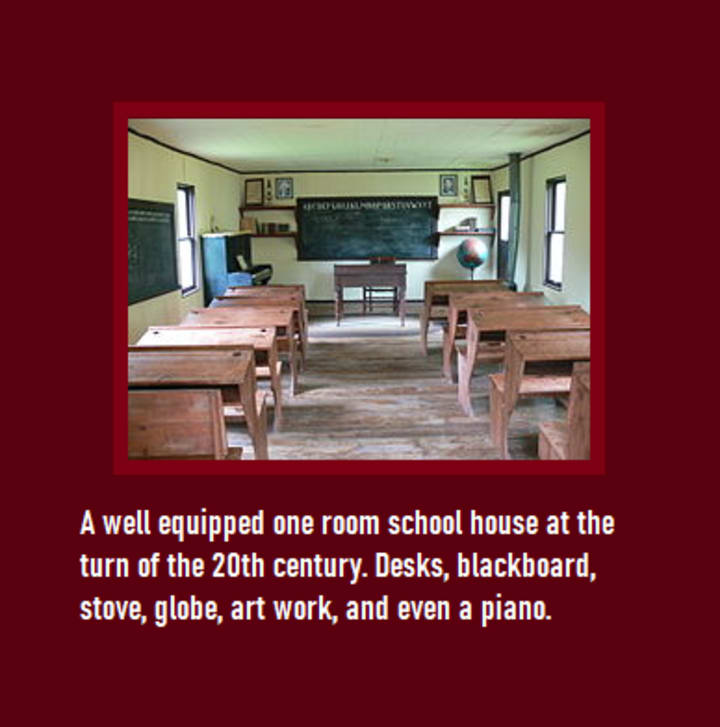
In an 1840 census it showed that the average age of children attending school was between five and fifteen, but there was no stipulated age in the beginning. Until laws were passed it was up to parents to decide when their children would start formal schooling. For many years, five to six years old was the accepted age to begin school, but in the early seventies the idea of early education had begun to be actively encouraged.
In today’s society it has become common for families to send their child to some kind of pre-k school, and many are being sent as early as three years old, even when there is a stay at home adult in the house. But is this really the best thing for our children and our families?
Thanks to the pandemic we're seeing education with new eyes.
Until we were forced into this unforeseen situation, many parents had little knowledge of what was being taught in their child’s school beyond the basics of reading, writing, and arithmetic...
...but over the past year families have been getting their own education, which for many has been so overwhelming that it has been like being thrown into the pool with their clothes on.
Parents are seeing their children struggling to acclimate to the online forum, and even if they are fortunate enough to be up on how to use these virtual learning spaces themselves, parents might be astonished at how many of the teachers are not. For all of the new technology out there, the vast majority of schools, and their teachers, were poorly equipped to handle a crisis that required distance learning.
You only have to look at how rapidly children are falling behind to see the truth in this statement.
Historically, over the past eighty years or more most brick and mortar classrooms have used a combination of lectures, reading from text books, and visual demonstrations to instruct students. I understand how difficult that can be, even in a literal classroom, as I remember how my mind would wander when my teachers were using a method I didn’t connect with. I can also relate to teaching my own children in a homeschool environment, each child blessed with their own learning styles, and each one a different grade level. It was quite the juggling act.
Teaching a diverse group of young people is challenging enough when we are in our comfort zone, but now we’ve had a curve ball thrown into the equation. Due to social distancing, teachers must now attempt to reach out through a computer screen and capture the interest of their students while competing with the family dog or cat, noisy siblings, temptations to wander off and get a snack from the kitchen, or a host of other issues found in each student’s home, that would not be present in the more sterile environment of the physical classroom.
The pandemic has changed all of our lives in many ways, and children who need structure and consistancy in their dauly lives are suffering from a myriad of symptoms indicitive of the times.
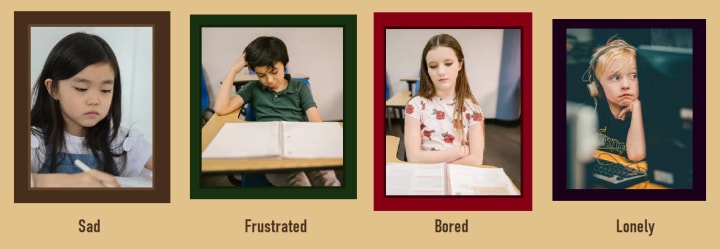
Parents must take a more hands on approach than they are perhaps used to doing so their child doesn’t fall victim to the malaise of being isolated from their friends and their comfortable routines. Moms and dads may not feel they have the expertise to teach their child, but while challenging, it isn't as hard as it looks, and right now just being there for your kids may be all they really need.
Sadly, I don’t believe we have a choice anymore. Either we step up to the plate and find a way for our children to thrive in this new environment, or we will find that they are well behind where they should be when school begins again in the fall, and beyond.
One possible solution would be for the brick and mortar schools to team up with the already existing cyber schools that have been conducting this style of learning for over two decades. Those schools were the pioneers in online education and have already laid the ground work, having worked out most of the bugs in the tech issues, which public schools have been dealing with throughout this past year.

Unfortunately, that is unlikely to happen for several reasons, not the least of which is that there has been a great deal of animosity between brick and mortar and cyber schools ever since their inception. For those who may not understand how these different school options work, it’s along the same lines as the whole school choice issue, which the public schools have been fighting for decades.
The money follows the student.
When an area allows parents to have vouchers to send their child to the school of their choice the child’s neighborhood school loses the revenue which would have come automatically with that child’s compulsory attendance at that school.
You can understand why it would be a concern for administrators if students were allowed to leave their school and attend a charter or cyber school instead—less money. The truth is most schools don’t really care if parents decide to homeschool or send their children to a private school because they will still receive the tax dollars for the student whether they attend the school or not, but this is not the case if they go to another public (government funded) school.
There have been numerous cases of litigation on the part of brick and mortar public schools to attempt to discredit the charter and cyber school communities and get them shut down. I would not want to go so far to say that the public schools want children to fail during the pandemic, but there has been a lot of buzz coming out of the public school forums stating that the poor student progress this past year proves cyber schooling doesn’t work. That isn’t true of course, providing the cyber schooling is being done by institutions that are qualified to school in that manner, but no doubt they would love to make that case in court.
The truth is, it isn’t working for them because they don’t know what they are doing, and due to the unforeseen circumstances we have all been thrown into they are trying to alter their methods on the fly as it were. Cyber schooling is actually a very effective method of education for certain types of students, especially if the school in question knows what it’s doing, but it didn’t evolve overnight. It took several years of trial and error before they got it right, so brick and mortar schools shouldn’t be so quick to throw in the towel.
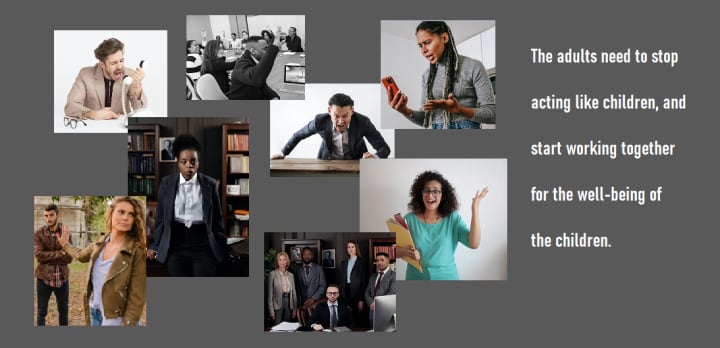
Anyway, to say there is bad blood between brick and mortar and cyber schools might be a bit of an understatement, but if the administrators of these struggling school systems would swallow their pride, and lay off the animosity, they might be surprised at how helpful the leaders in the cyber school community could be. My experience is that teachers and staff of cyber schools are very dedicated to helping students excel in the virtual classroom, and would likely be more than willing to give assistance to those who ask for it, especially while the pandemic is keeping kids home.
Now parents need to ask themselves some hard questions. Depending on where you live your children may really be struggling. For the record, I’m not picking on these locations in particular because this problem exists all over the country, possibly all over the world right now, but in places like Chicago where teachers unions are refusing to go back to in-classroom learning, and states like Pennsylvania where children are only getting to be in the classroom two days out of five, they are putting your child’s future at risk.
Are you finding yourself working from home more? Could homeschooling, or cyber schooling be a feasible option for you to consider?
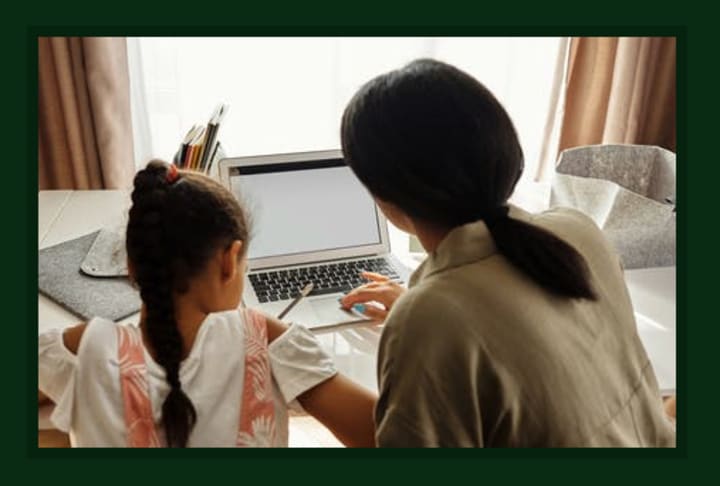
Before you react, and declare, “there is no way…” consider that lots of people do this and their children go on to college, trade schools, and become entrepreneurs of all kinds. There are also many rewards which only working one on one with your children can give you as well.
Even before the pandemic, cyber schooling and homeschooling had been gaining acceptance in many communities. Families who were feeling the disconnection that so often comes with the increases in technology have chosen to make a change so that they can be closer to their children and not lose that time which passes so quickly when they are young.

Many families have decided to scale back their wants and live on less so they can become more home centric. In Part 2 of this article I will address how this can become the best time in your family’s life.
Regardless of what choice you decide is best for you and your family, however, there are some excellent resources available to help your student get through the tough times they are going through right now.
A quick internet search for the Khan Academy (https://www.khanacademy.org/) and Study Island (https://www.studyisland.com/) will give you access to both free, and reasonably priced online tutoring for middle students through Jr. High School. And for younger students most books stores either carry, or can order, a variety of workbooks to keep their minds active and their fingers busy.
I know it is a difficult time, and there is a lot to get up to speed on, but relax and allow yourself the room you need to find your way. And when the dust settles you can look back on it and know that you did what was best for you and your children.
Odds are—you won’t regret it.
About the Creator
Denise Brandell Mastrocola
I am a writer and editor. I have certifications in Family, Marriage, and Human Relations and like to write both fiction and non-ficiton books and short stories.






Comments
There are no comments for this story
Be the first to respond and start the conversation.